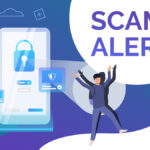Student loan scams are a growing concern in the United States, and many people are falling victim to these deceitful schemes. One phone number that has been reported for such scams is 2098490134. This article will explore what student loan scams are, how they work, and what you can do to protect yourself. With the right knowledge, you can avoid being scammed and report any suspicious calls to the appropriate authorities.
Understanding Student Loan Scams
What Are Student Loan Scams?
Student loan scams involve individuals or companies that mislead people into believing they can help with their student loans. These scams may promise loan forgiveness, consolidation, or lower interest rates, but in reality, they often take your money and provide little to no help. Many of these scams target recent graduates or current students who may be overwhelmed with their student loan debt.
Common Tactics Used by Scammers
Scammers often use several tricks to lure their victims:
- Urgent Messages: Many scams create a sense of urgency. The caller might say you need to act fast or risk losing a valuable offer.
- Fake Credentials: Some scammers impersonate legitimate companies or government agencies to gain trust.
- Unsolicited Calls: If you receive a call out of the blue offering help with your loans, be cautious.
- Request for Payment: Scammers may ask for upfront fees to assist with your loans.
Statistics on Student Loan Scams
According to recent data, millions of Americans are affected by student loan scams each year. The Federal Trade Commission (FTC) has received thousands of complaints related to student loan fraud. This alarming trend highlights the importance of being aware of such scams and knowing how to protect yourself.
The Case of 2098490134
Overview of the Complaints
The phone number 2098490134 has been associated with numerous complaints regarding student loan scams. Callers from this number often leave messages claiming to offer loan consolidation or forgiveness programs. One common message reported goes as follows:
“Hello, this is Bob calling on behalf of the Hardship loan issuance department. Your offer number is 812734 again, that’s 812734. You’ve been preapproved for up to a $35,000 unsecured debt consolidation loan. This offer is time-sensitive and is set to expire within the next 24 hours. Please call me as soon as possible at 2098490134 again, that’s 2098490134.”
Analysis of the Message
The message creates a sense of urgency, claiming that the offer will expire soon. This is a classic tactic used by scammers to pressure individuals into making quick decisions without fully understanding the situation. The mention of a “preapproved” loan is also misleading, as legitimate lenders do not make such promises without a thorough review of your financial situation.
How to Identify Scam Calls
Recognizing Potential Scam Calls
Being able to identify a scam call is crucial in protecting yourself from fraud. Here are some common signs to look out for:
- Unsolicited Offers: If you receive a call offering help with your student loans, especially if you didn’t request it, be cautious.
- High-Pressure Tactics: Scammers often create a sense of urgency. If a caller insists you must act quickly, it’s likely a scam.
- Lack of Personalization: Legitimate companies will address you by name and reference your specific loan details. If the caller does not know your name or uses vague terms, it’s a red flag.
- Requests for Personal Information: Never provide personal information, such as your Social Security number or bank account details, over the phone to unsolicited callers.
More Red Flags
In addition to the signs mentioned above, consider the following:
- Unprofessional Language: If the caller speaks in a casual or unprofessional manner, it may indicate they are not from a legitimate company.
- Too Good to Be True Offers: Be sceptical of offers that seem too good to be true, such as loan forgiveness for a small fee.
- Lack of Contact Information: Legitimate companies will provide a physical address and a website. If the caller cannot provide this information, be cautious.
What to Do If You Receive a Call from 2098490134
Steps for Dealing with Unwanted Calls
If you receive a call from 2098490134 or any other suspicious number, here are steps you can take:
- Do Not Engage: Avoid engaging with the caller or providing any information. Hang up if you feel uncomfortable.
- Block the Number: Most smartphones allow you to block specific numbers. This can prevent future calls from the same source.
- Report the Call: Reporting the number is crucial. You can file a complaint with the Federal Trade Commission (FTC) or your state’s consumer protection office. This helps authorities track down and investigate fraudulent activities.
Reporting to Authorities
When reporting a scam call, provide as much information as possible:
- The phone number that called you (e.g., 2098490134).
- The date and time of the call.
- A summary of the message you received.
This information is vital for authorities to investigate and take action against scammers.
Protecting Yourself from Future Scams
Proactive Measures
To prevent falling victim to future scams, consider these proactive measures:
- Educate Yourself: Stay informed about the latest scams and tactics used by fraudsters. The more you know, the better prepared you will be to recognize scams.
- Use Call-Blocking Apps: Many apps can help block unwanted calls. Research and choose one that fits your needs.
- Keep Your Information Private: Be cautious about sharing personal information over the phone. Verify the identity of the caller before providing any details.
Stay Informed
Following consumer protection organizations on social media can provide timely updates about current scams. This information can be invaluable in helping you recognize and avoid scams before they affect you.
Conclusion
Being aware of student loan scams is essential in today’s world. Numbers like 2098490134 highlight the risks that many people face regarding fraudulent calls. By understanding what these scams look like and knowing how to identify them, you can protect yourself and your financial future.


